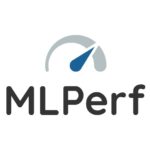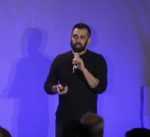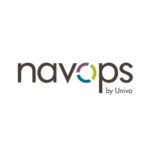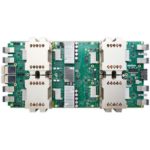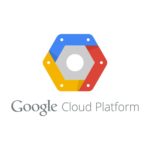A happy Monday morn to you. This week’s HPC News Bytes offers a quick (4:53) run-through of the major news in our sector over the past week. This morning we look at: Gartner predicts accelerated growth for composable computing; Proposed ABI (application binary interface) for MPI to simplify parallel apps; AMD buys AI software company Mipsology – a sign of more AI M&A activity to come?; HPC clone on Google Cloud Platform
Harvard Uses Google Cloud to Clone Supercomputer for Medical Research Runs
A Harvard scientist used Google Cloud Platform compute resources to construct an HPC clone to conduct heart disease study, according to a Reuters story, “a novel move that other researchers could follow to get around a shortage of powerful computing resources….”
Google Cloud and NVIDIA Set New Training Records on MLPerf v0.6 Benchmark
Today the MLPerf effort released results for MLPerf Training v0.6, the second round of results from their machine learning training performance benchmark suite. MLPerf is a consortium of over 40 companies and researchers from leading universities, and the MLPerf benchmark suites are rapidly becoming the industry standard for measuring machine learning performance. “We are creating a common yardstick for training and inference performance,” said Peter Mattson, MLPerf General Chair.
Video: High Performance Computing on the Google Cloud Platform
“High performance computing is all about scale and speed. And when you’re backed by Google Cloud’s powerful and flexible infrastructure, you can solve problems faster, reduce queue times for large batch workloads, and relieve compute resource limitations. In this session, we’ll discuss why GCP is a great platform to run high-performance computing workloads. We’ll present best practices, architectural patterns, and how PSO can help your journey. We’ll conclude by demo’ing the deployment of an autoscaling batch system in GCP.”
Moving HPC Workloads to the Cloud with Univa’s Navops Launch 1.0
Today Univa announced the release of Navops Launch 1.0, the latest version of the most powerful hybrid HPC cloud management product and a significant advancement in the migration of HPC workloads to the cloud. Navops Launch meshes public cloud services and on-premise clusters to cost-effectively meet increasing workload demand. “A unique automation engine allows Navops Launch to integrate third-party data sources, including storage fabric, management systems, cluster and cloud environment attributes.”
Google Cloud TPU Machine Learning Accelerators now in Beta
John Barrus writes that Cloud TPUs are available in beta on Google Cloud Platform to help machine learning experts train and run their ML models more quickly. “Cloud TPUs are a family of Google-designed hardware accelerators that are optimized to speed up and scale up specific ML workloads programmed with TensorFlow. Built with four custom ASICs, each Cloud TPU packs up to 180 teraflops of floating-point performance and 64 GB of high-bandwidth memory onto a single board.
Intel Skylake Comes to Google Cloud Platform
Today the Google Cloud Platform announced that it is the first cloud provider to offer the next generation Intel Xeon processor, codenamed Skylake. “Skylake includes Intel Advanced Vector Extensions (AVX-512), which make it ideal for scientific modeling, genomic research, 3D rendering, data analytics and engineering simulations. When compared to previous generations, Skylake’s AVX-512 doubles the floating-point performance for the heaviest calculations. In our own internal tests, it improved application performance by up to 30%.”
Podcast: How Cycle Computing is Riding the Wave of HPC in the Cloud
In this podcast, Jason Stowe from Cycle Computing provides an update on the world of HPC in the Cloud. After that, he describes how the company is augmenting its software capabilities so that more users can take advantage of HPC for their toughest computing challenges. “Our CycleCloud V6 further optimizes what is already unique about its predecessor, bringing unmatched scalability, provisioning, and data management in a secure process. We are extremely pleased to bring V6 to market.”
Video: Managing Large Production Cloud Deployments
“Cycle Computing software leverages cloud resources to make computation in the cloud productive at any scale, by orchestrating workflows, managing data, balancing cloud options, and enabling users in a secure, controlled way. Our software works with public cloud providers like Amazon Web Services, Google Cloud Platform, and Microsoft Azure, as well as with internal and private cloud environments.”



